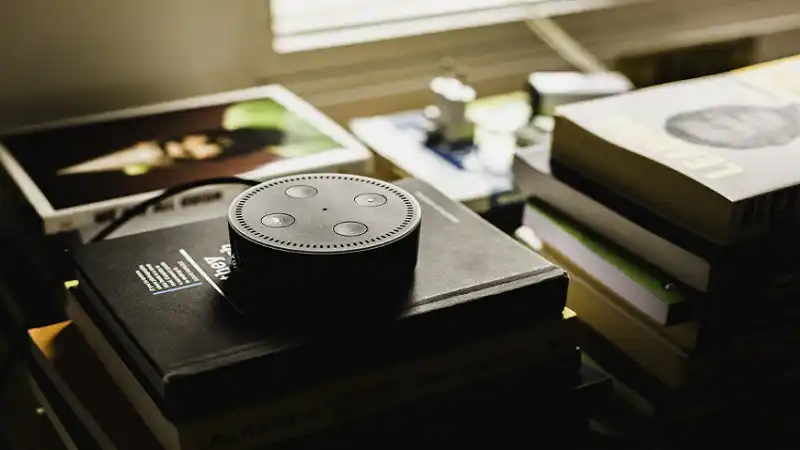The world of consumer electronics is constantly evolving, with companies like Apple leading the charge. One of the most anticipated developments in the tech world is the potential introduction of AI-powered AirPods. As reported by reputable sources like Mark Gurman from Bloomberg, the tech giant has been hard at work on incorporating artificial intelligence into its popular AirPods lineup. This article will explore the exciting developments surrounding AI AirPods, what industry insiders like Gurman are saying, and the practical steps you can take to prepare for this next generation of smart audio devices.
What Are AI AirPods?
To understand the significance of AI AirPods, it’s important first to define what makes them “AI-powered.” Simply put, AirPods have traditionally been simple Bluetooth headphones, equipped with basic sensors for things like voice recognition and automatic playback. However, Apple is reportedly moving toward integrating more advanced artificial intelligence (AI) and machine learning capabilities into the AirPods, potentially transforming them into far more than just audio accessories.
According to sources from Gurman and Bloomberg, the new generation of AirPods will feature AI-powered enhancements designed to improve various aspects of user experience. These might include more intelligent voice recognition, adaptive noise cancellation, and even the ability to adjust audio settings based on a listener’s environment and preferences.
Key Features to Expect
Some of the rumored features based on insights from Mark Gurman and Bloomberg sources include:
- Enhanced Sound Customization: AI could help tailor the sound profile based on your environment, adjusting bass, treble, and volume dynamically.
- Adaptive Noise Cancellation: With AI, AirPods could analyze ambient noise and adjust the level of noise cancellation in real-time, making the listening experience more immersive.
- Health Monitoring: AI might also be used to track metrics like heart rate or even posture, expanding AirPods’ utility beyond music and calls.
- Smarter Siri Integration: AI will improve how AirPods interact with Apple’s voice assistant, Siri. Expect more accurate commands and perhaps even predictive features that anticipate what you need.
These AI-powered capabilities would represent a major leap forward for Apple’s AirPods, especially considering how successful the AirPods have been since their initial release. But how did we get here, and what are the next practical steps for users looking to get their hands on this futuristic technology?
The Role of AI in the Evolution of AirPods
AI has been at the core of many major innovations in consumer electronics, and Apple is known for its commitment to using AI to enhance user experience. For example, Siri, Apple’s voice assistant, already uses AI to understand and process voice commands. Similarly, Apple’s Neural Engine is embedded in devices like the iPhone and iPad to accelerate machine learning tasks.
By incorporating AI into AirPods, Apple would be able to push the boundaries of what audio technology can achieve. This integration would enable the AirPods to continuously learn from user behavior and the environment around them, ultimately providing a more personalized experience.
The key difference between traditional AirPods and these AI AirPods is that the latter could evolve over time. Just like other smart devices (think smartphones or smartwatches), the new AirPods could receive updates that improve their capabilities, creating a smarter and more adaptive listening experience.
Insights from Gurman and Bloomberg: What the Experts Are Saying
Mark Gurman, one of the most reliable and influential sources of Apple-related news, has consistently provided in-depth insights into the company’s upcoming products. According to Gurman’s reports on Bloomberg, Apple’s development of AI-powered AirPods is part of a broader strategy to dominate the smart audio and wearable technology markets.
Gurman has stated that Apple’s push toward AI-powered headphones is no surprise, given the company’s broader investment in AI technologies. Apple has increasingly positioned itself as a leader in smart devices, and integrating AI into AirPods fits well with its vision for the future of wearables. Notably, AI would help Apple differentiate its AirPods from competitors like Sony and Bose, whose noise-canceling and sound-enhancing headphones already perform well in the market.
The AI Advantage
According to Bloomberg, the AI integration will also help improve the overall user experience by providing more intuitive controls. Imagine being able to ask Siri to adjust the noise cancellation level based on your surroundings or having the AirPods automatically recognize when you’re in a noisy environment and adjust the audio accordingly. These features would significantly enhance user interaction and eliminate many of the manual adjustments users need to make today.
Timing and Release
As for when we might see these AI-powered AirPods, Gurman suggests that the launch could happen as early as 2025, aligning with Apple’s trend of introducing major new features every couple of years. However, Apple may choose to introduce incremental AI enhancements in the coming months through software updates, so even existing AirPods may receive new AI features over time.
How AI-Powered AirPods Could Impact Your Everyday Life
For most people, AirPods are already a game-changer in terms of convenience and sound quality. The potential introduction of AI-powered features promises to take things to the next level. Here are some ways AI integration might impact your everyday life:
1. Improved Sound Quality and Customization
AI could analyze your listening habits and automatically adjust the sound profile for you. For instance, if you often listen to podcasts, the AirPods could optimize the clarity of voices. Similarly, if you prefer bass-heavy music, the AI could boost the low frequencies to suit your preferences.
2. More Efficient Noise Cancellation
Adaptive noise cancellation powered by AI would mean that your AirPods could seamlessly adjust based on your environment. Whether you’re in a crowded café or on a quiet walk, your AirPods could automatically choose the best level of noise cancellation for you, providing the most immersive listening experience possible.
3. Personalized Health and Fitness Insights
Health tracking is already a huge part of Apple’s ecosystem, thanks to the Apple Watch. By integrating AI into AirPods, Apple could offer users a new avenue for monitoring their health. For example, AI could track your movement patterns while listening to music, offering insights into your posture, walking speed, or even heart rate.
4. Smarter Interaction with Siri
AI would allow for smarter interactions with Siri, making voice commands more intuitive and natural. You might even be able to have a conversation with Siri, where it learns your preferences over time and anticipates what you want, without having to ask every single time.
What Can You Do Now?
While the full AI-powered AirPods experience is still a work in progress, there are practical steps you can take to get the most out of your current AirPods setup and prepare for future enhancements:
1. Keep Your AirPods Updated
Even if you don’t own the latest model, regular updates will improve the features of your existing AirPods. As Apple rolls out incremental AI features, you’ll want to ensure that your device has the latest firmware.
2. Experiment with Current Features
AI-based features like adaptive EQ and noise cancellation (available in certain models like the AirPods Pro) are already a step toward more intelligent devices. Familiarize yourself with these settings to maximize the potential of your current AirPods.
3. Stay Informed
Follow industry experts like Mark Gurman and Bloomberg for the latest updates on AI integration. Given Apple’s secretive nature, keeping up with leaks and reports can help you anticipate upcoming features.
4. Upgrade When the Time Comes
If you’re eager to experience the cutting edge of AI-powered audio, consider upgrading your AirPods when Apple releases the next generation. Apple typically supports its products with regular updates, so even if you invest in a future model, you’ll continue to enjoy AI improvements over time.
Conclusion
AI-powered AirPods represent the next frontier in wearable technology, combining the best of Apple’s hardware design with the cutting-edge capabilities of artificial intelligence. According to Mark Gurman and Bloomberg, this evolution is not just about better sound or more efficient noise cancellation—it’s about creating a device that adapts to your environment, enhances your health and fitness routines, and improves your daily life in ways we can only begin to imagine.
While the specific timeline for these next-generation AirPods is still uncertain, the future of AI-enhanced wearables is undeniably exciting. As AI continues to evolve, so too will the functionality of AirPods, ensuring that Apple’s flagship audio device remains at the forefront of innovation. Whether you’re a music lover, fitness enthusiast, or tech aficionado, AI AirPods will soon offer a level of personalization and intelligence that will make them an even more essential part of your digital ecosystem.










